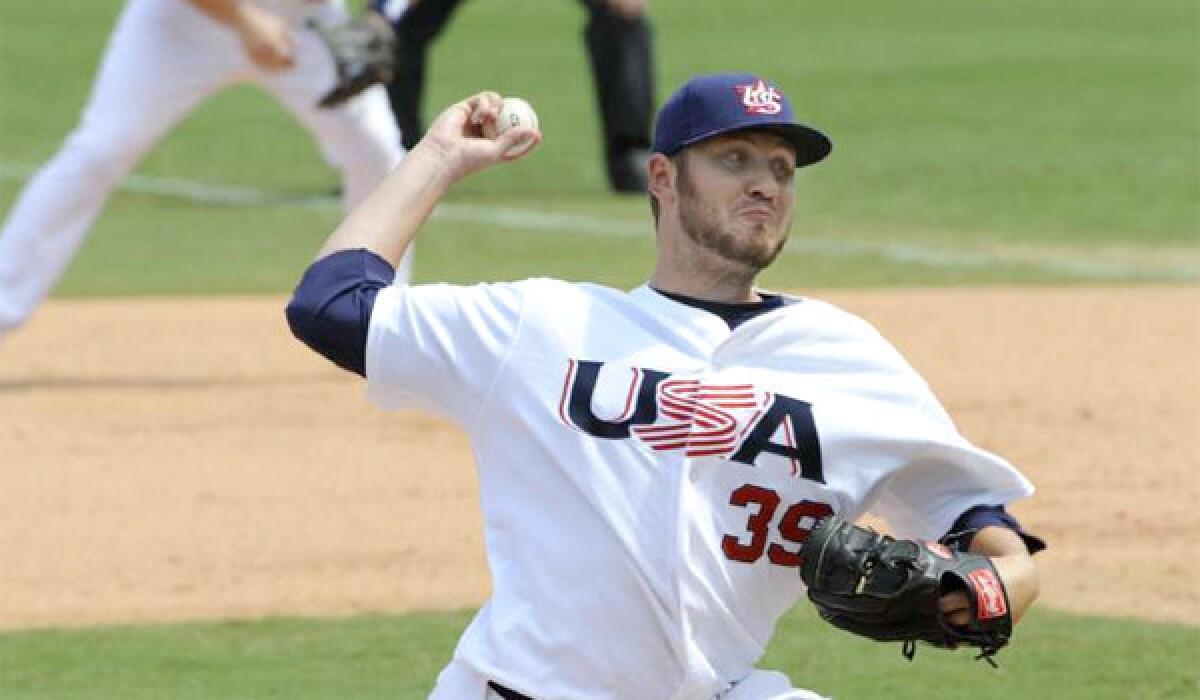International Olympic Committee has big decisions to make

The hallways of the big hotels in Buenos Aires are buzzing these days. At stake is not just one Olympian task, but three.
This might be the most important gathering of Olympic people since a few got together back in 1979 and decided this fellow Peter Ueberroth might do a decent job running the L.A. Games.
Heading into those â84 Games, the Olympic movement wasnât quite sure how long it would be one. Then Ueberroth, Harry Usher, David Wolper and their carefully chosen, hard-working cast provided vision, inspiration and expertise as to how to leverage television. Also, cash.
Ueberroth became Time magazineâs Man of the Year, and the Olympics became a canât-miss big deal.
Now, this multibillion-dollar extravaganza â alternating Summer and Winter Games every two years â must choose a new leader, decide on its 28th sport and pick the city for 2020.
There are an estimated 1,000 media members on hand for this International Olympic Committee session, all trying to make sense of, and report on, secret confabs and favor-peddling in lobbies and on bar stools. The Olympics are nothing if not political.
Starting Thursday, and into Friday, the highest-profile action will take place. The IOC will choose Tokyo, Madrid or Istanbul as the 2020 site. Tokyo leads, although each city has problems. A Japanese nuclear power plant recently leaked into the ocean. Madridâs baggage is Spainâs economic woes. Istanbul has been in the news with anti-government protests and riots.
The IOC likes its sites clean, bright and benign. It would book Palm Desert in March, if it could. Currently, Tokyo appears to be the least troubling of the three.
To end the meetings, the IOC will pick a new leader. The front-runner is Thomas Bach, 59, of Germany, who would replace Jacques Rogge of Belgium. Bach won a gold medal in fencing, was president of Germanyâs National Olympic Committee and has held several top spots in the IOC.
His most important attributes are that he is male and European, satisfying the Olympic power structure. All five other candidates are male, two of them also European.
The last Summer Games in the United States were the â96 Atlanta Games. The math is easy. The next U.S. shot is 2024. That would end a 28-year drought, but there are no guarantees. There is the consideration, however, that without U.S. television money, there might not be an Olympics, period.
Squeezed between choosing a city and a president will be a vote that may interest U.S. fans the most. The IOC must rectify its most interesting and bizarre recent decisions.
In 2005, at one of its meetings, the IOC dropped softball and baseball, starting in 2012 in London. Then, in February, it ousted wrestling, a sport that had been one of its staples since the beginning.
The softball/baseball dump was interpreted as a shot at the U.S. major leagues, which had refused to shut down their season, a la hockey, to compete in the Olympics. Softball, a popular sport and a successful move toward gender equity, was tossed under the same bus as baseball because it was mostly an American and Asian sport. In other words, not European.
Sunday, the IOC, with a limit of 28, will add one sport. In the finals with wrestling and softball/baseball is squash, which has about as much chance as a Hindu woman being elected president.
The softball attempt is of special interest to Southern California because so many of its past stars came from here â Lisa Fernandez, Crystl Bustos, Stacey Nuveman, Natasha Watley, Jessica Mendoza. Members of this group led the way to gold medals in Atlanta, Athens and Sydney and a silver in the sportâs last hurrah in Beijing.
The IOC will probably reinstate wrestling. But softball wonât go down without taking a few more swings.
Heading that will be its longtime leader, Don Porter, who says that one of the best moments in his life was getting softball into the Olympics and one of his worst was when they took it out.
Porter is 82. He is from the San Fernando Valley, played football at East L.A. College and was a football official in the Big Eight Conference and NFL. Once he went into softball administration in the early 1960s, he never stopped campaigning.
âI remember talking to Avery Brundage in 1968 about getting our sport in,â he says now.
He has been president of the International Softball Federation since 1987. When it became clear that softballâs only chance to get back in the Games was in a joint bid with baseball, via a joint federation, Porter stepped sideways. He now shares the presidency with baseballâs Riccardo Fraccari of Italy.
They will propose six days of baseball, followed by six days of softball, in the same stadium quickly converted in a day. They see that as more saleable, and manageable, to Major League Baseball. They will also propose making the baseball games seven innings.
As always, Porter will work the lobbies and hallways, knowing itâs a longshot.
âI gotta keep trying,â he says, âfor all these young girls, who keep writing me emails and letters about their dream.â
More to Read
Go beyond the scoreboard
Get the latest on L.A.'s teams in the daily Sports Report newsletter.
You may occasionally receive promotional content from the Los Angeles Times.







